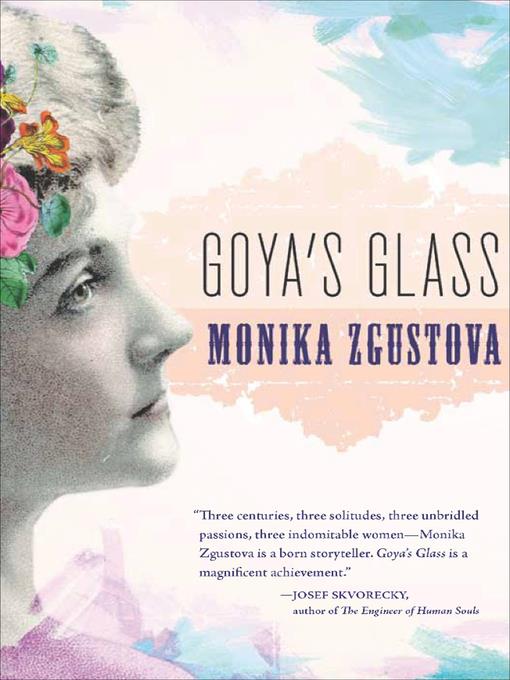
Goya's Glass
- اطلاعات
- نقد و بررسی
- دیدگاه کاربران
نقد و بررسی

July 23, 2012
In her first novel to be translated into English, Prague-born writer Zgustova masterfully reimagines the true stories of three inimitable womenâthe Duchess of Alba, the lover and muse of 18th-century Spanish painter Francisco Goya; Božema NÄmcová, a Czech writer and nationalist living in the 19th-century Austro-Hungarian empire; and Nina Berberova, a Russian exile residing in Paris during the former's revolution. Readers learn of the Duchess' passionate encounters with Goya through her 1st-person accounts. Likewise, through intimate reflections, telegrams, and reports propagated by the protectors of the "Austrian fatherland," Zgustova diagrams the surveillance and attempted repression of the tenacious NÄmcová's voice and spirit. Nina Berberova fled from the newly installed Soviet regime in 1922 with poet Vladislav Felitsianovich Khodasevich, whose amorous musings on their relationship are interweaved with Berberova's sentimental letters detailing the plight of their home country. For Zgustova and her triad of women, the experience of exileâso delicately rendered in Berberova's lettersâis as palpable as the struggle to survive beneath the weight of a repressive regime, as documented in NÄmcová's life story. Inhabiting the crossroad between history and imagination, Zgustova's new novel is a tantalizing and powerful effort.

September 1, 2012
Zgustova's (The Silent Woman) challenging novel links the lives of three passionate women from different cultures in different centuries. The first section introduces the Duchess of Alba, one of Francisco Goya's favorite subjects (and possibly his lover) and the model for The Naked Maja. In a feverish deathbed monolog, the Duchess rails against the 18th-century conventions that have restricted her life. Next, the reader meets 19th-century Czech nationalist Bozena Nĕmcova who, defying Austro-Hungarian edicts, wrote folktales, novels, and incendiary articles in Czech, only to fall victim to the secret police who enlisted her friends as spies, sent her lovers to remote outposts, and alienated her readers. Finally, Zgustova limns the 20th-century life of Nina Berberova, an anti-Soviet writer in exile who loses her homeland and lover but never stops writing. VERDICT While the metafictional use of various unidentified narrators, reminiscent of authors like Italo Calvino, Jorge Luis Borges, and Milan Kundera, is potentially off-putting, the lives of three women struggling against the conventions of their times are likely to appeal to feminist readers and lovers of Michael Cunningham's The Hours.--Andrea Caron Kempf, formerly with Johnson Cty. Community Coll. Lib., Overland Park, KS
Copyright 2012 Library Journal, LLC Used with permission.




دیدگاه کاربران